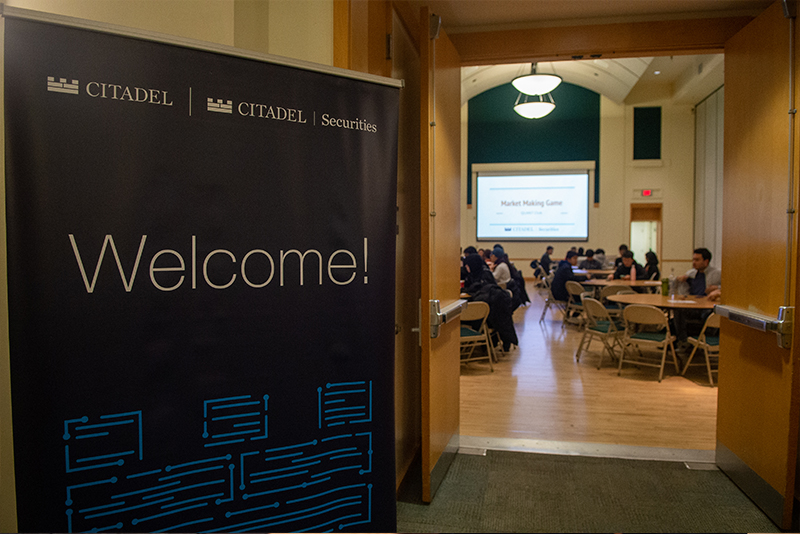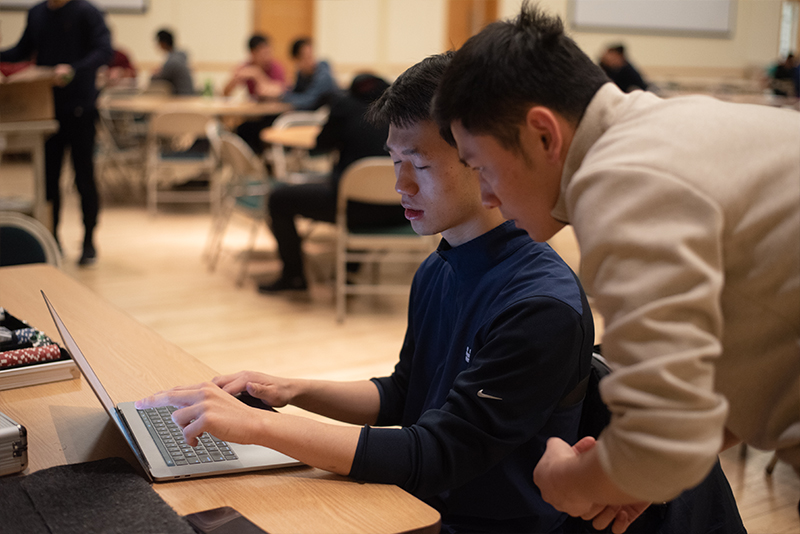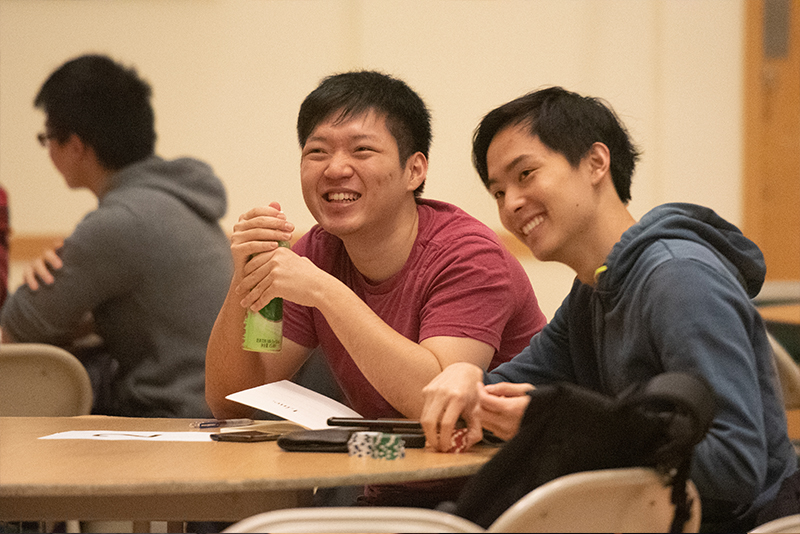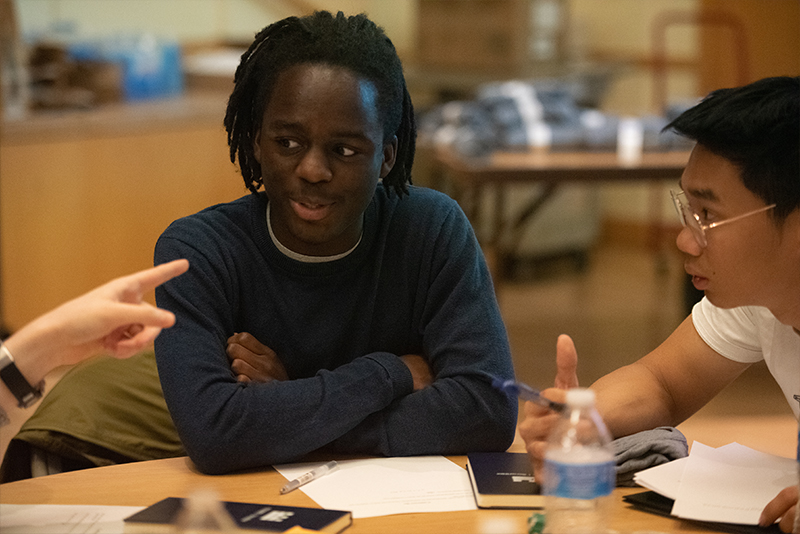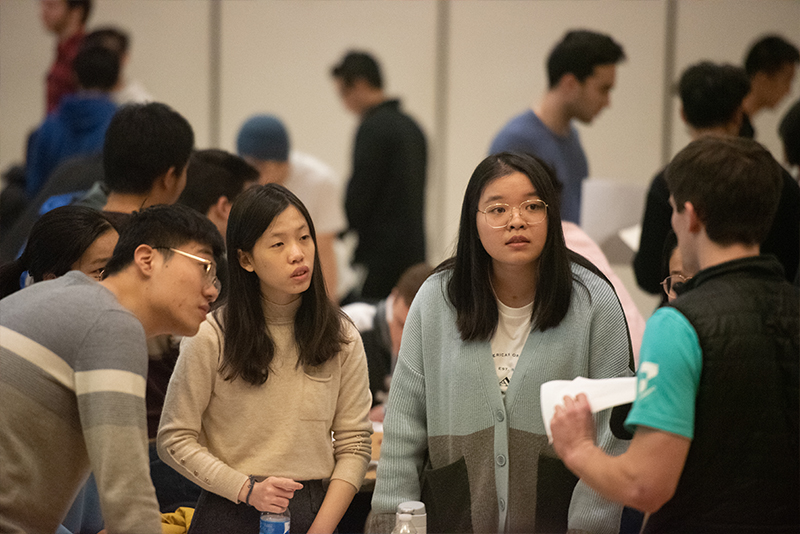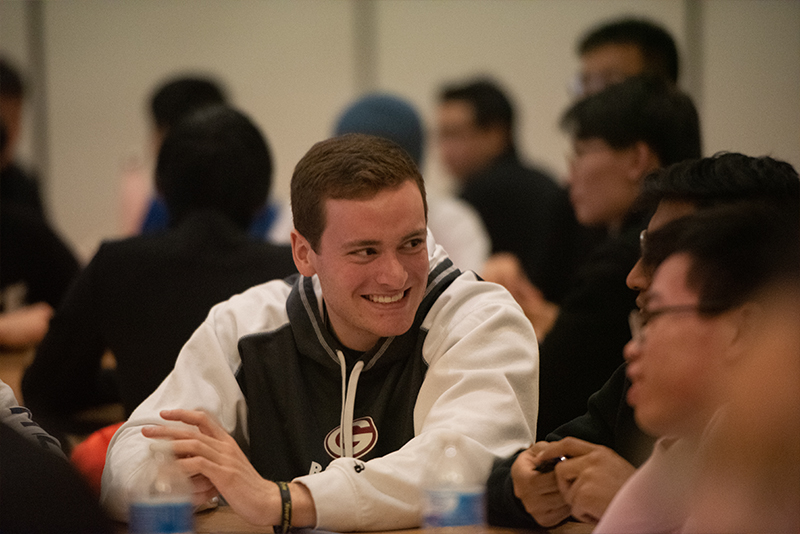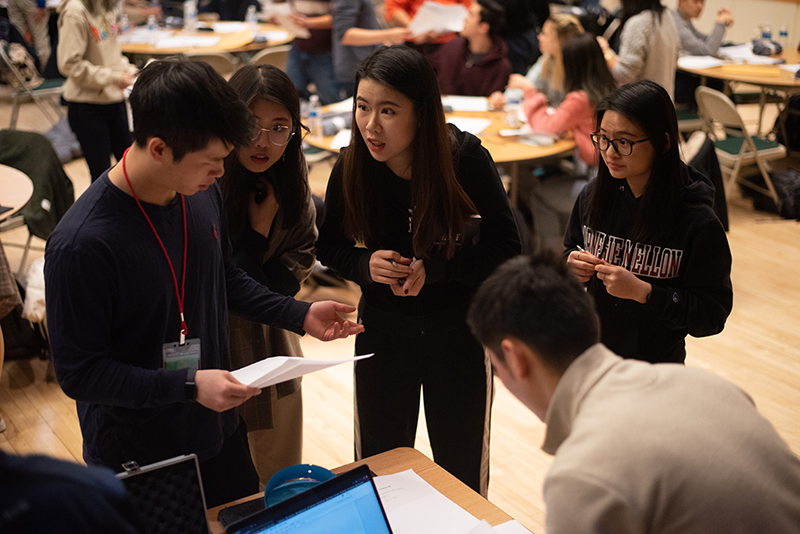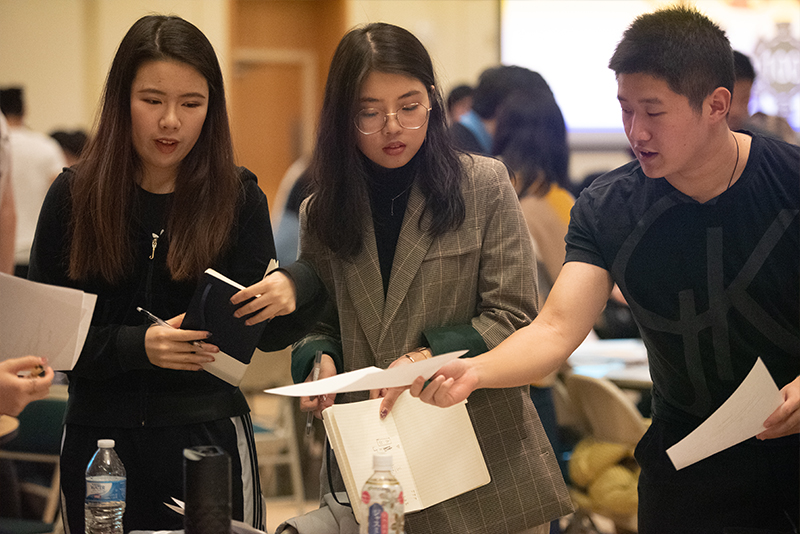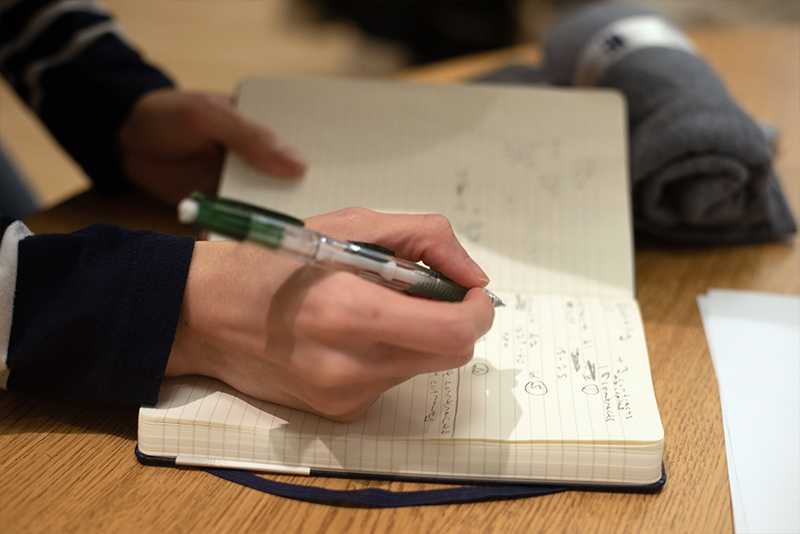

In February 2020, 150 students gathered to test their financial prowess at a Market Making Game. The event was hosted by Carnegie Mellon University’s Quant Club and sponsored by Citadel Securities, one of the world’s biggest market makers. It brought together undergraduate and graduate students from all across the university.
The game was a thought-provoking mixture of estimation, optimization and negotiation. Teams of participants took on the role of market makers as they tried to maximize their capital by trading with other teams.
Twenty-five teams started the game with contracts and some (fake) cash. Throughout five rounds of play, teams had to use their cash to buy contracts or sell contracts to make more cash. However, there was a catch. They didn’t actually know the value of the contracts. Instead, each round rotated through questions about Citadel securities, the economy, mathematical puzzles and general trivia that teams had to solve to reveal the price of the contracts.
“These were tricky problems,” said Bill Hrusa, mathematical sciences professor and faculty advisor to the Quant Club. “For example, one probability-focused question asked the number of times you need to roll a six-sided die in order that the product is going to be bigger than 20200201, the date of the event.”
Hrusa was not surprised to see teams using a variety of strategies throughout the game.
One of those strategies is to visit the liquidity station. The liquidity station knows the hidden value of all the contracts. Teams could trade with the station once per round to gain information on the true value of their contracts.
“They can assume we will make the choice that maximizes our profit or minimizes our loss,” said Quant Club President Tony Wang, who oversaw one of the stations. Essentially, if the liquidity station buys a contract, the team then knows they undervalued the contract. If the station sells the team a contract, the team knows it overvalued the contract.
It’s a lot of uncertainty, but that’s what makes the game all the more exciting.
“[The Market Making Game] is not just based on problem-solving but teamwork, too.” — Lily Qiao
“The most challenging part is the uncertainty that comes from not knowing the exact value of the contract and having to trade it anyways if you want any chance to make money,” said Dallas Foster, recent computational finance graduate.
Fellow 2020 computational finance graduate Jason Ren agreed. His team managed that uncertainty by splitting up into different roles based on their strengths. Shengming Luo, a Ph.D. candidate in statistics, and Justin Cao, another computational finance recent graduate, solved the problems to find out the value of the contracts; Ren and mathematical sciences student Wynn Huang drove hard bargains as the team’s traders; and computational finance major Cindy Ding also traded with other teams and managed the contracts and communication for the team.
The team took home first prize, ending the day with a 10% return on their contracts.
Ren’s favorite part about the event was interacting with other teams. “With a room of 150 people, it can get pretty intense,” he said. “Multiple groups are trying to compete at the same time. It almost felt like a trading floor where people are shouting on the floor and the phone.”
The Quant Club has been hosting the Market Making Game for a few years, but this was their first university-wide event. Former Quant Club executive Max Chen brought the game to the club after participating in a trading competition at another university. Chen, a computational finance graduate, went on to earn his master’s in machine learning from CMU before joining Citadel as a trader in August this year. He wrote all the questions for the event and, along with Wang, helped organize the partnership with Citadel. Citadel representatives gave advice to teams during the game and chatted with students at a pre-event lunch.
The event was undoubtedly a success for the Quant Club. “I think the Market Making Game is my favorite Quant Club event,” said Lily Qiao, a computational finance student and club executive. “It is a lot of fun because it’s so interactive. It’s not just based on problem-solving but teamwork, too.”
■ Emily Payne
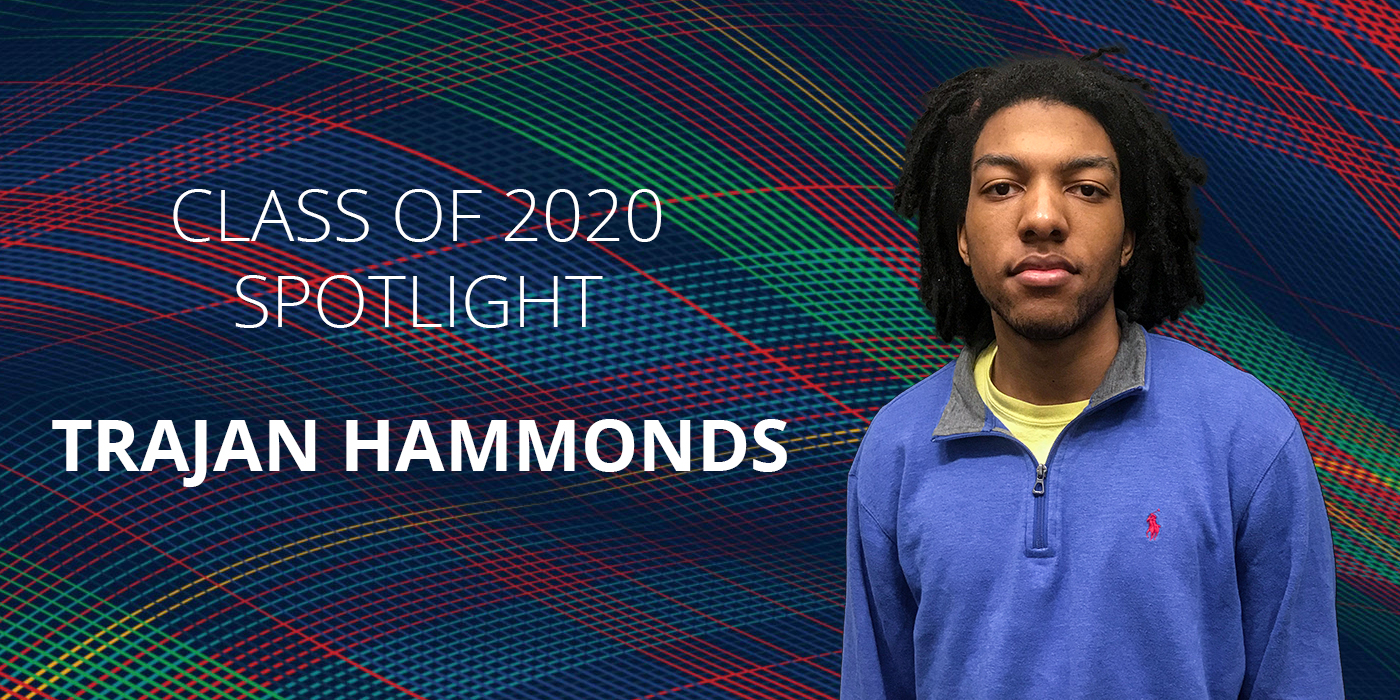
Trajan Hammonds spent his undergraduate years cultivating experiences that would give him as much exposure as possible to research in mathematics, a journey that has prepared him for his next steps as a Ph.D. candidate at Princeton University.
Each summer, Hammonds participated in a Research Experience for Undergraduates (REU) program, always hoping to find a new problem to tackle. He spent his first summer at the Mathematical Sciences Research Institute Undergraduate Program, the next at Williams College and his final summer at the University of Minnesota, Duluth.
“All three REU programs were instrumental in my decision to pursue a research career in mathematics,” said Hammonds.
His passion for research culminated in an impressive five papers during his time as an undergraduate, three of which have been published: one in the Houston Journal of Mathematics, one in the Journal of Number Theory and another in the International Journal of Number Theory.
“Trajan has been a vibrant and valuable member of the mathematics community at CMU,” said Hammond’s advisor, Director of Undergraduate Studies Jason Howell. “He accomplished a great deal during his four years here, and I know that the future for Trajan is very bright.”
Number theory, which uses a variety of tools from other subjects like algebraic geometry and harmonic analysis to answer basic questions about whole numbers, is Hammonds overarching area of study. And what led him to continue his studies at Princeton.
“I chose Princeton primarily for its abundance of faculty in number theory, including two recent Fields medal winners, who together cover a wide range of topics in number theory,” Hammonds said.
While Hammonds has physically moved to New Jersey, he’s starting his graduate studies virtually. He spends his time in classes, seminars, reading groups and in finding his doctoral research path. Currently, much of his research consists of trying to understand what has been done in the field before. A lot of number theory research consists of trying to figure out the right way to think about things, Hammonds notes. And he’s looking for the central story that links everything together.
“I want to identify key tools and components in the landscape that would be useful for problems I may try to solve in the future. Moreover, it’s important to really understand how things work in a classical setting in order to try to frame things in a more general setting,” he said.
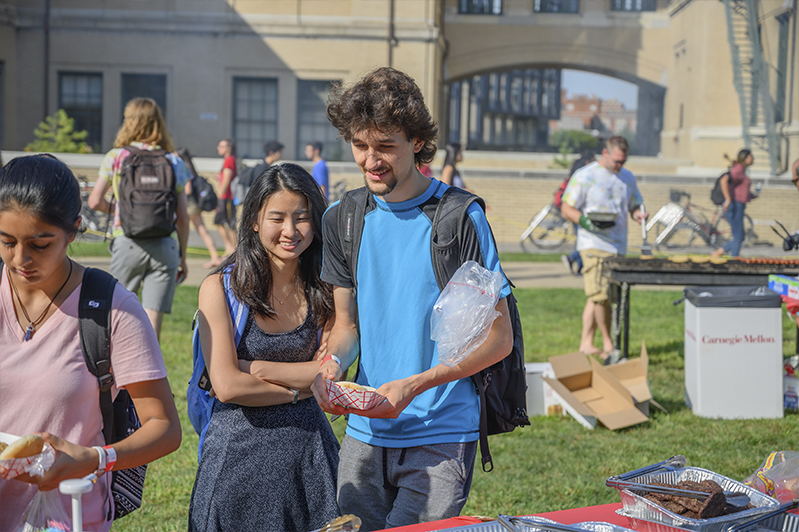
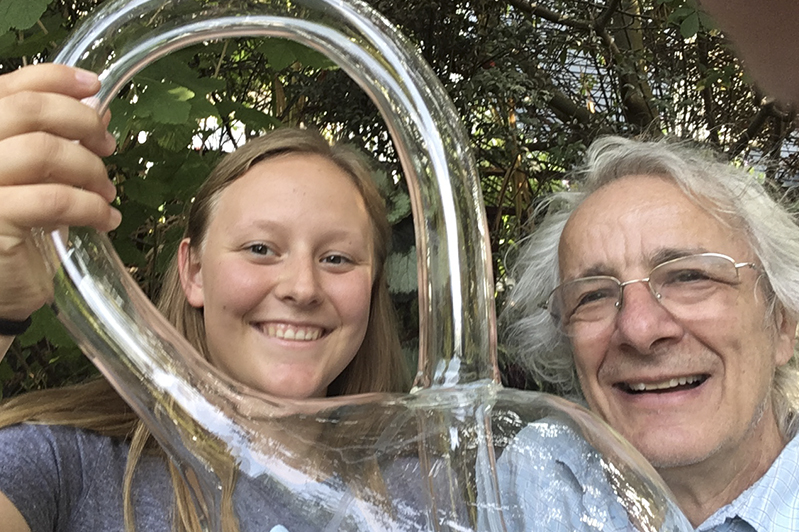
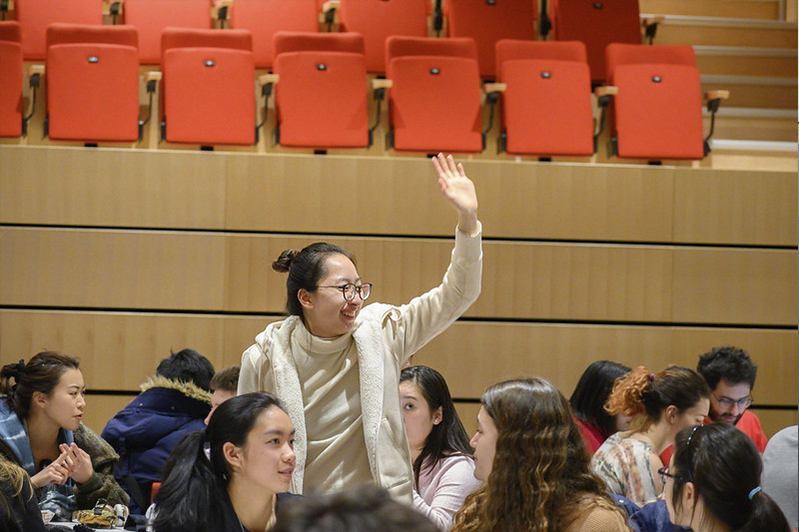
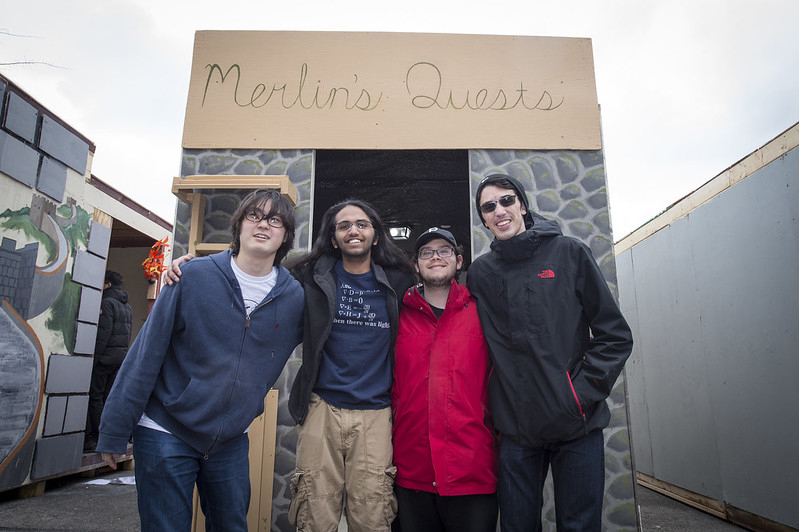
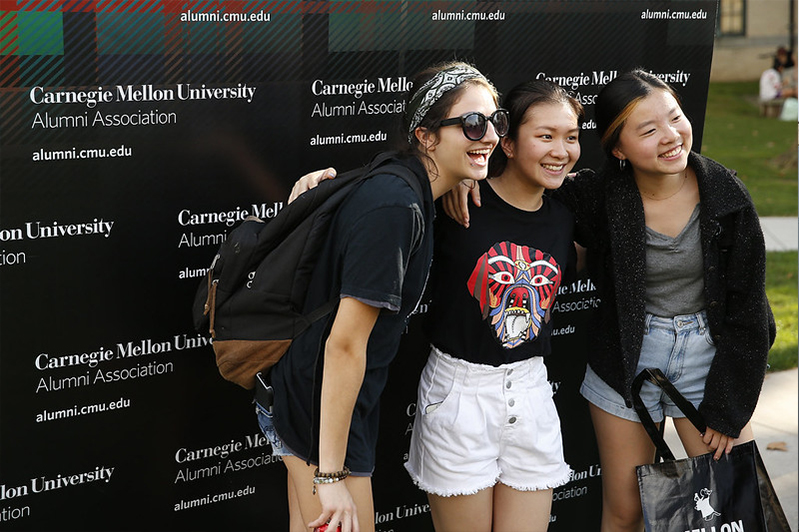
Class of 2020 Destinations
Firms that hired more than one member of the class:

Doctoral Programs
University of Chicago,
Statistics
Penn State University,
Mathematics
Princeton University,
Mathematics
University of California, Los Angeles,
Mathematics (x2)
University of North Carolina at Chapel Hill,
Bio Statistics
University of Wisconsin,
Mathematics

